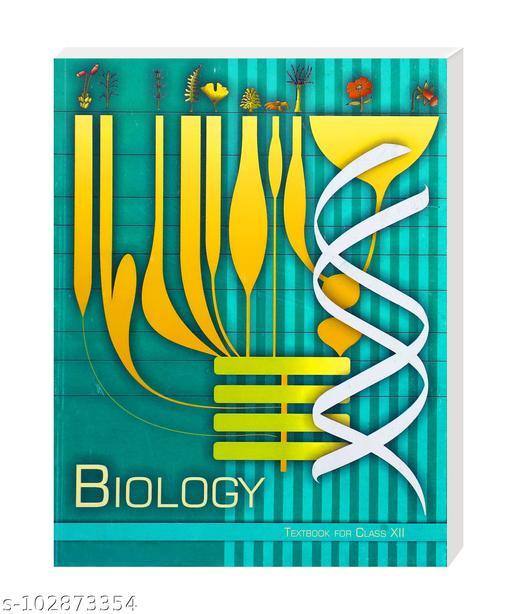Biology Class-12
-
- 5 rating
- (1 Reviews)
- 0 students enrolled
Biology Class-12
Class 12 biology is an important stage for students considering careers in biology, medicine, environmental science, or related fields. It provides a deeper understanding of biological concepts and their practical applications.
-
- 5 rating
- (1 Reviews)
- 0 students enrolled
What learn
- Comprehensive Subject Knowledge
- Visual and Interactive Education
- Adaptive Learning Methodology
- 24/7 Availability
- Global Reach and Diverse Resources
Course Content
Requirements
- Smart Phone Or Laptop with Internet Connection
Description
Here's a brief overview of each:
-
Principles of Inheritance and Variation II: Likely covers advanced topics related to genetics, inheritance patterns, and variations in traits.
-
Sexual Reproduction in Flowering Plants: Explores the reproductive mechanisms in flowering plants, including flower structure, pollination, and seed formation.
-
Human Health and Disease I: Introduction to human health and common diseases, including their causes and prevention.
-
Environmental Issues I: Discusses environmental concerns and issues, such as pollution, conservation, and sustainable practices.
-
Strategies for Enhancement in Food Production: Examines techniques and strategies used in agriculture and food production to increase yields and quality.
-
Evolution I: Introduces the concept of biological evolution, the mechanisms behind it, and evidence supporting the theory of evolution.
-
Biotechnology and its Applications: Covers the principles of biotechnology and its practical applications in various fields.
-
Biotechnology Principles and Processes: Provides a deeper understanding of the principles and processes involved in biotechnology.
-
Molecular Basis of Inheritance I: Focuses on the molecular mechanisms of DNA replication, transcription, and translation.
-
Human Reproduction II: Likely covers more advanced topics related to human reproduction, including reproductive technologies.
-
Reproduction in Organisms: Examines different modes of reproduction in various organisms, including asexual and sexual reproduction.
-
Human Reproduction I: Introduction to human reproductive anatomy, physiology, and the menstrual cycle.
-
Environmental Issues II: Explores additional environmental concerns, such as climate change, biodiversity loss, and conservation efforts.
-
Human Health and Disease II: Expands on the study of human health and diseases, including specific diseases and their treatments.
-
Biodiversity and Conservation: Discusses the importance of biodiversity, threats to it, and conservation strategies.
-
Biology in Human Welfare: Explores the role of biology in improving human health, agriculture, and industry.
-
Molecular Basis of Inheritance II: Further elaborates on the molecular mechanisms involved in genetic inheritance.
-
Principles of Inheritance and Variation I: Likely covers the basics of genetics, Mendelian inheritance, and genetic traits.
-
Evolution II: Continues the study of evolution, possibly focusing on specific evolutionary processes and examples.
-
Principles of Inheritance and Variation III: Possibly delves into more advanced genetic concepts and inheritance patterns.
-
Molecular Basis of Inheritance III: May cover advanced topics related to molecular genetics and gene regulation.
-
Reproductive Health: Discusses reproductive health issues, family planning, and reproductive rights.
-
Ecosystem: Study of ecosystems, their components, and ecological relationships among organisms.
-
Organisms and Population: Examines population dynamics, species interactions, and ecosystem functions.
-
Microbes in Human Welfare: Explores the beneficial roles of microorganisms in various aspects of human life, such as medicine and industry.
Recent Courses
- June, 23rd 2025
- 3
This course plan outlines a comprehensive curriculum for a prompt engineering course, designed to equip learners with the ski..
- 1699.00₹
2000.00₹
- June, 28th 2025
- 12
In an era where technology is seamlessly integrated into our daily lives, understanding the synergy between Embedded Systems..
- 1599.00₹
2000.00₹
- May, 22nd 2024
- 0
Microeconomics is an essential component of economics as a whole, as it helps us understand how individual decisions and inte..
- 799.00₹
999.00₹
About Instructor
"Founded in 2019, Bringup Education stands as a dynamic Ed-Tech firm. We take pride in offering a diverse array of courses, spanning from school-level education to rigorous undergraduate programs, all impeccably facilitated through our state-of-the-art Learning Management System (LMS).
Moreover, at Bringup Education, we are committed to preparing students for the professional world by providing valuable training and internship opportunities. These experiences not only augment students' skills but also ensure they are 'job ready' upon graduation."


.png)




.png)


